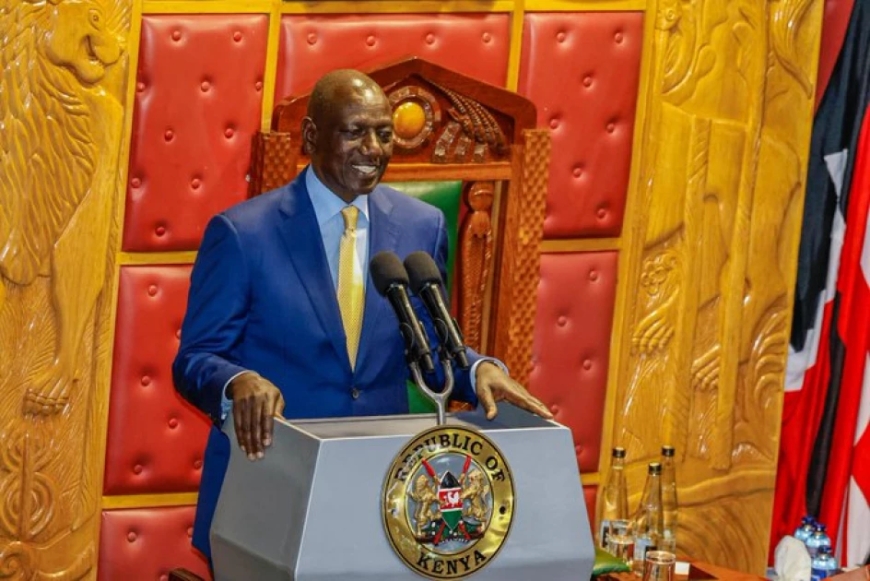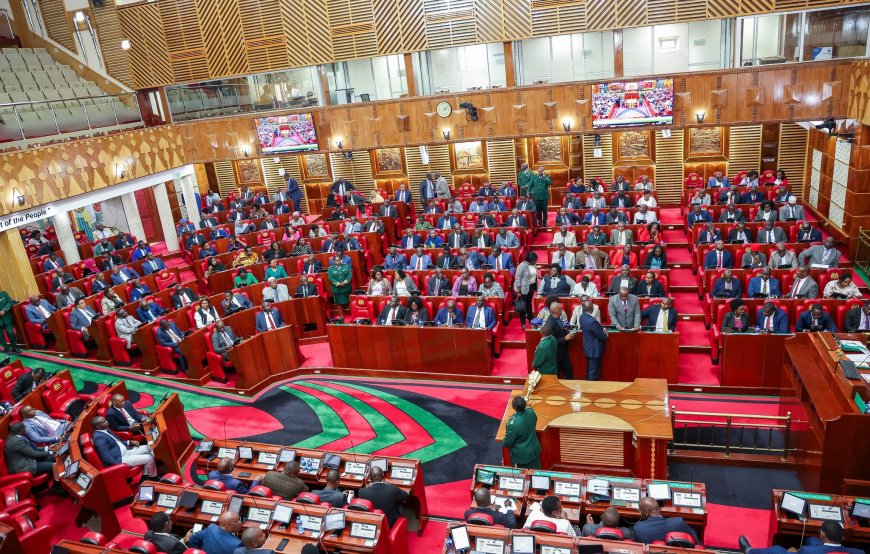Why Senators Want Ruto Summoned
They cautioned that the President’s remarks could damage Parliament’s credibility and reverse progress achieved under devolution.

Senators have called on National Assembly Speaker Moses Wetang’ula and Senate Speaker Amason Kingi to summon President William Ruto to present proof backing his claims that MPs were involved in bribery.
They cautioned that the President’s remarks could damage Parliament’s credibility and reverse progress achieved under devolution.
During a Tuesday Public Accounts Committee session chaired by Senator Moses Kajwang’ and attended by Senator Edwin Sifuna, the lawmakers criticised Ruto’s statements, arguing they unfairly tainted the integrity of elected leaders.
They stressed that the President must provide testimonies, intelligence briefs, or any other evidence to justify his allegations. Otherwise, they warned, the image of both Parliament and county governments would remain tarnished.

Bird's eye view of a National Assembly session as of July 24, 2025. /PARLIAMENT KENYA
"Article 125 gives us the power to compel the appearance of any person before this committee, including the President who is making allegations of unethical conduct on the part of Parliament.
"I want to challenge the Speakers of the two Houses to issue a summon to the President to come and explain who are those people who are demanding bribes and those who are given bribes," he said.
The senators’ response came after President Ruto’s Monday address during a joint Kenya Kwanza and ODM Parliamentary Group meeting in Karen, Nairobi. In an agitated tone, Ruto claimed he had reliable intelligence indicating that some lawmakers from both Houses were taking bribes to sway critical parliamentary decisions.
He further declared that the government would arrest and prosecute any leaders—especially MPs and Senators—found guilty of soliciting or accepting bribes in exchange for carrying out their legislative roles.
Ruto also alleged that one senator had pocketed as much as Ksh150 million to influence the outcome of a particular matter before the House, though he stopped short of revealing the individual’s identity.
According to the senators, making such claims without presenting evidence only undermines public trust in Parliament and derails its ongoing oversight responsibilities.
''He should come and explain who is making and receiving those bribes. The sentiments could only be linked to a trial of Parliament in a kangaroo court. The Speakers should apply their powers and have him appear before the necessary committees to shed light on this," Kajwang' added.
They emphasised that Parliament, being a central institution of governance, must not have its reputation damaged by broad allegations that lack substantiation.
The lawmakers added that if the accusations are genuine, they should be handled through the right agencies—including the Ethics and Anti-Corruption Commission (EACC), Parliament, and the Directorate of Criminal Investigations (DCI)—instead of being raised at political forums.







